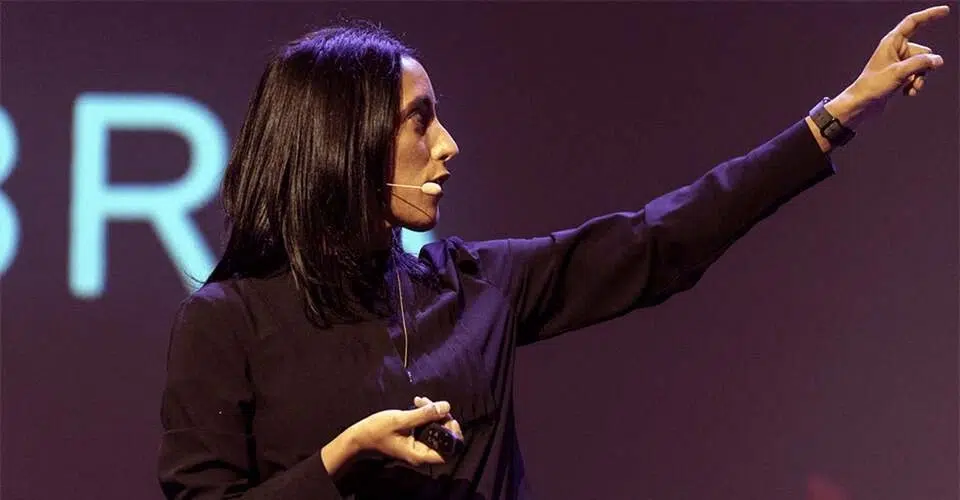Argentina’s Software Development: 14 Tech Leaders
Meet the standout software minds from Argentina leading innovation and shaping the country’s tech future. ↓
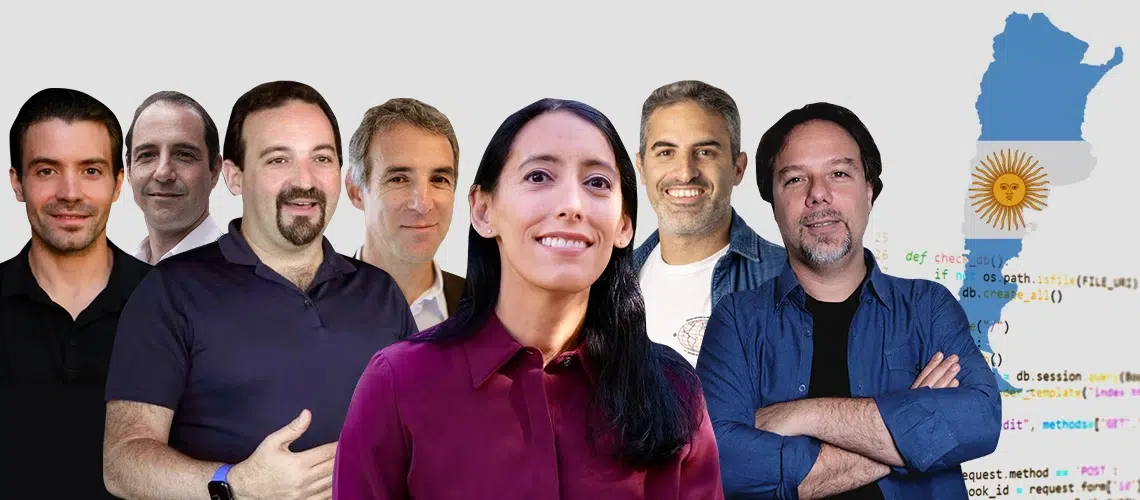
Below is a curated list of the most prominent and currently active software developers with roots in Argentina.
This list spans a variety of domains – including open-source leadership, startup entrepreneurship, influential tech blogging, competitive programming and tech disciplines (AI, crypto, data science) – all weighted equally in highlighting their impact.
- Maximiliano Firtman
- Guillermo Rauch
- Matias Woloski
- Juan Linietsky
- Ariel Manzur
- Emiliano Kargieman
- Martin Abadi
- Manuel Araoz
- Sergio Demian Lerner
- Miguel Grinberg
- Ines Sombra
- Facundo Batista
- Manuel Aristaran
- Mariano Conti
Now, let’s delve into each of these individuals’ contributions and why they are notable.
Maximiliano Firtman

Vanilla Web: You Don’t Need that Library
Max is an independent mobile and web developer who has become a global authority on mobile web performance.
Based in Buenos Aires, he has over 20 years of experience and was an early advocate for building rich mobile web apps. Firtman authored numerous books, including “High Performance Mobile Web” and “Programming the Mobile Web”, and was one of the first Adobe Community Champions in Latin America. He founded ITMaster, a training academy, and has taught and mentored thousands of developers through workshops and courses. As a speaker, Maximiliano is a familiar face at conferences like Google I/O, OSCON, and Velocity, where he shares insights on PWA, web performance, and new browser APIs. He also runs a blog where he publishes deep dives into topics like iOS WebView capabilities or experimental browser features. His passion for web technology, combined with a clear teaching style, has made advanced concepts accessible.
Firtman’s contributions put Argentina on the map in the front-end world – he’s proof that you can live far from Silicon Valley yet still shape the cutting edge of the Web.
- Linkedin: Maximiliano Firtman
- X (Twitter): @firt
- Website/Blog: firt.mobi
Guillermo Rauch
Guillermo is a software engineer and entrepreneur, best known as the founder and CEO of Vercel, the company behind Next.js.
An early champion of open source, Rauch created popular Node.js libraries like Socket.IO and Mongoose (for MongoDB) before co-designing the Next.js framework. After his first startup (LearnBoost) was acquired by Automattic, he founded Vercel to build a platform for high-performance web deployment – which now powers sites for companies like The Washington Post and Nintendo.
Guillermo has been an active tech speaker and author (he wrote Smashing Node.js), and he continues to drive innovation in the web development community as an Argentine tech leader on the global stage.
- Linkedin: Guillermo Rauch
- X (Twitter): @rauchg
- Github: rauchg
- Website/Blog: rauchg.com
Matias Woloski
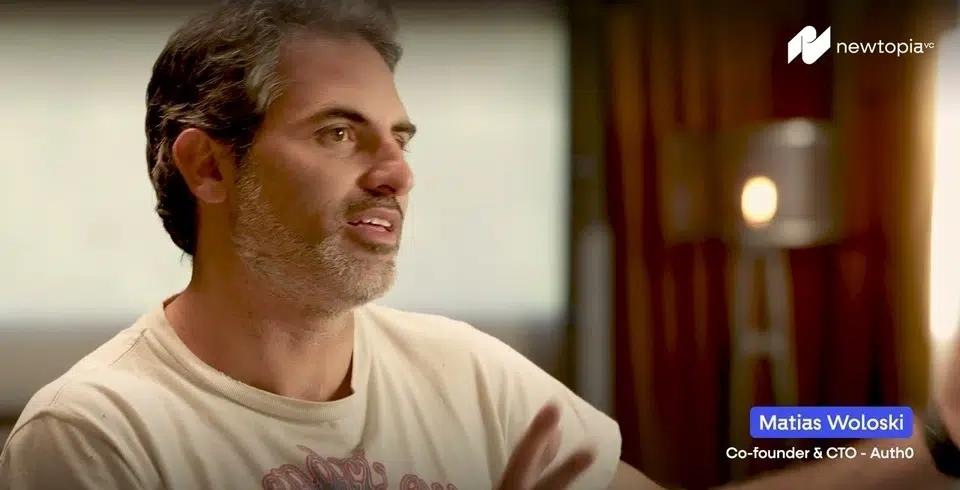
Photo: NewtopiaVC
Matías is the co-founder and former CTO of Auth0, a developer-focused identity management platform that became one of Argentina’s first tech “unicorns”.
Under his technical leadership, Auth0’s authentication-as-a-service product grew from a small startup (founded in 2013) to a global success, culminating in a $6.5 billion acquisition by Okta in 2021. Woloski, an engineer by training, remained deeply involved in building Auth0’s architecture and developer experience, which were key to its widespread adoption by application developers. Today, after helping Auth0 reach international prominence, Matías continues to mentor startups (e.g. through Latitud) and explore new projects at the intersection of education and AI (Portal Bosque).
He exemplifies Argentine entrepreneurial talent that still codes and architects products even as a company scales.
- Linkedin: Matías Woloski
- X (Twitter): @woloski
- Github: woloski
Juan Linietsky
Juan is a software engineer best known as the co-founder and lead developer of the Godot Engine, one of the world’s most popular open-source game engines.
Developed in Buenos Aires by Juan and collaborator Ariel Manzur starting in 2007, Godot was open-sourced in 2014 and quickly gained a global following. As Godot’s technical lead, Linietsky has architected its engine design and implemented countless features, from its innovative scene system to a new Vulkan-based renderer. Under his guidance, Godot grew from a local project into a top-tier engine used by thousands of game developers worldwide – and in 2023 it received a significant grant from Valve, highlighting its industry impact. Juan remains deeply involved in coding and reviewing contributions on Godot’s GitHub, and he engages actively with the community (often under his handle “reduz”).
His work has lowered the cost of entry for game development and put Argentina on the map in the game tech arena.
- Linkedin: Juan Linietsky
- X (Twitter): @reduzio
- Github: reduz
Ariel Manzur
Ariel is the co-founder of the Godot Engine alongside Juan Linietsky, and a core contributor to its development.
With a background in game development, Ariel helped build the engine’s foundations during its early years at their game studio in Buenos Aires, focusing on areas like the editor and scripting system. After Godot’s open-source release, Manzur continued to contribute to the engine’s growth and served as an advisor. He has since taken on new challenges (including roles in immersive tech startups), but remains an active figure in the Godot community and an advocate for open-source game development. In 2023, Ariel joined an immersive gaming platform (The Mirror) as an advisor, bringing his expertise from creating one of the world’s leading open engines.
His journey – from Argentina’s local dev scene to influencing global game tech – underscores the country’s contributions to open-source software.
- Linkedin: Ariel Manzur
- Github: punto-
Emiliano Kargieman
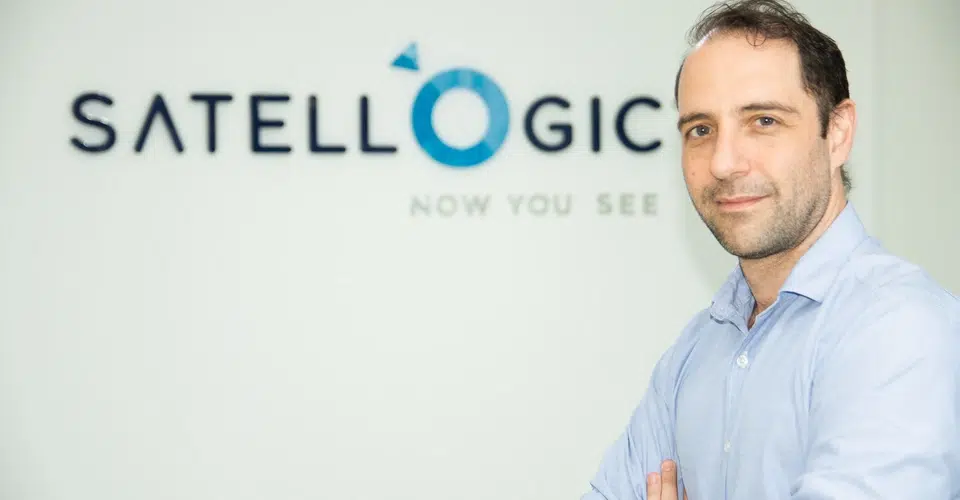
Emiliano is an Argentine technologist-turned-entrepreneur renowned for his bold shift from cybersecurity to space tech. In the 1990s and 2000s, he made a name in Buenos Aires as a teenage hacker and co-founder of one of the first penetration testing companies (Core Security).
By age 19 he was even helping improve government systems’ security. After a successful career in security, Kargieman attended NASA’s Singularity University, where he envisioned making satellites dramatically cheaper. This led him to co-found Satellogic in 2010, a company building low-cost Earth observation satellites. As CEO (and still a hands-on technologist), Emiliano applied hacker-style innovation to aerospace, achieving satellites “50 to 100 times cheaper” than traditional ones. Under his leadership, Satellogic has launched over 20 satellites into orbit, providing imagery for agriculture, energy, and national security uses. Backed by global investors, the company has raised over $150 million and even went public on the Nasdaq.
Kargieman’s trajectory from coding in Buenos Aires to pioneering “NewSpace” shows the world-class caliber of Argentina’s developer-entrepreneurs.
- Linkedin: Emiliano Kargieman
- X (Twitter): @earlkman
⭐ Argentina’s Top IT Recruiters for Relible Hiring
Martin Abadi
Martín is a renowned computer scientist and software engineer who has made groundbreaking contributions in programming languages, security, and machine learning. Born and educated in Argentina, Abadi earned his PhD at Stanford and went on to an illustrious career in research (DEC SRC, Microsoft Research, etc.).
Since 2014, he has been a Research Scientist at Google (in California), where he worked on the TensorFlow team and on privacy/security for AI systems. Martín’s research spans decades – from co-authoring the seminal book “Security in Computing” to recent work on machine learning privacy. In 2017, he was elected to the U.S. National Academy of Engineering for his lifetime contributions. One notable project that grabbed headlines was his experiment demonstrating that neural networks can develop their own secret encryption scheme when tasked to communicate securely. As a Google engineer, he also co-authored the TensorFlow framework’s whitepaper and helped make AI tools scalable.
Abadi, often understated in profile, represents Argentina in the highest echelons of tech – proving that an Argentine can be behind the scenes of the software that millions use daily.
- Linkedin: Martín Abadi
Manuel Araoz
Open source code is not just code — it’s coordination. It’s a contract with the world to say: I believe in collaboration.
Manuel is a software developer and entrepreneur known for his pioneering work in blockchain and decentralized tech. He co-founded OpenZeppelin, the most widely-used open-source library for secure Ethereum smart contracts, and served as its CTO.
Before that, Manuel created Proof of Existence in 2013 – the world’s first non-financial Bitcoin application, which allowed anyone to cryptographically notarize documents on the blockchain. He also contributed to the early concept of Decentraland, a blockchain-based virtual world, helping kickstart the project. A graduate of ITBA in Buenos Aires, Aráoz has been at the forefront of crypto innovation, demonstrating how Argentine talent has been instrumental in global Web3 advancements. These days, he continues to hack on Web3 projects, write insightful blog posts, and even dabble in game development (as evidenced by passion projects on his website).
Manuel’s career blends open-source ethos with entrepreneurial execution, making him a key Argentine figure in the blockchain developer community.
- Linkedin: Manuel Araoz
- X (Twitter): @maraoz
- Github: maraoz
- Website/Blog: maraoz.com
Sergio Demian Lerner
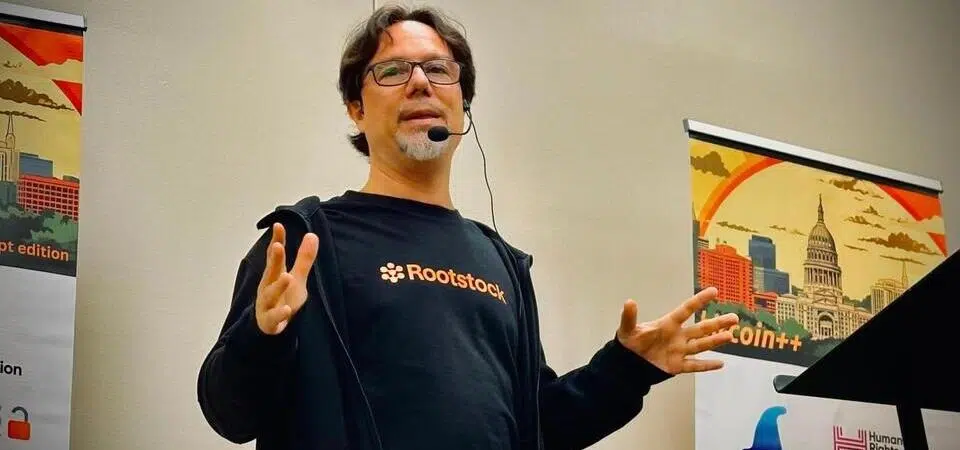
Sergio is a highly respected Bitcoin developer and security researcher, often cited as one of the most contributors to Bitcoin technology from Argentina.
A cryptographer by background, he gained international attention for his 2013 Patoshi research, in which he analyzed Bitcoin’s blockchain to theorize about Satoshi Nakamoto’s mining patterns – concluding that Satoshi likely mined ~1 million BTC. Sergio has reported early vulnerabilities in Bitcoin Core, proposed improvements to Bitcoin’s scalability and privacy, and authored numerous academic papers. He is also the co-founder and Chief Scientist of RSK (Rootstock), the first Bitcoin sidechain that brings Ethereum-like smart contracts to Bitcoin. Through RSK, Lerner helped design a federated peg and merge-mining system to leverage Bitcoin’s security for decentralized finance. Despite his low public profile, developers worldwide reference Sergio’s work – from the ASICBoost mining optimization he co-discovered to the Bitcoin improvement proposals he’s contributed.
Within Argentina, he’s a legendary figure who proved that deep protocol R&D can happen outside Silicon Valley. In the crypto community, Sergio’s name is synonymous with technical excellence and innovation.
- Linkedin: Sergio Demian Lerner
- X (Twitter): @SDLerner
Miguel Grinberg
Miguel is a software engineer and author in the Python community, widely recognized for his contributions to Python web development. He is the author of the O’Reilly book “Flask Web Development”, and the creator of the Flask Mega-Tutorial, which has taught countless developers how to build web applications with Flask.
Miguel also developed Flask-SocketIO, a popular extension that adds real-time bidirectional communications to Flask apps via WebSockets. A blogger, he has shared deep expertise on topics ranging from authentication to scaling on his blog. In recent years, Miguel worked as a Senior Engineer at Twilio and later at Amazon Web Services, all while maintaining his open-source projects and educational content. He is an active member of the global Python community and has delivered talks at PyCon and other conferences. Grinberg’s impact as a community educator – in both English and Spanish – has made sophisticated web development concepts accessible to audiences in Latin America and around the world.
He exemplifies how an Argentine developer can influence a global tech ecosystem through open sharing of knowledge.
- X (Twitter): miguelgrinberg
- Github: miguelgrinberg
- Blog: miguelgrinberg.com
Ines Sombra
Inés is a software engineer and engineering leader known for her expertise in distributed systems and her advocacy for diversity in tech. Originally from Argentina, Inés moved to the US for graduate studies and has built a prominent career in infrastructure engineering. She is currently VP of Engineering, Core Systems at Fastly, where she helps architect global content delivery and edge cloud systems.
Prior to Fastly, Sombra spent years at Engine Yard working on cloud data services, and became a sought-after speaker on topics like real-time data pipelines, messaging systems, and “cloud native” application design. She has spoken at conferences such as OSCON, QCon, and Strange Loop – often infusing humor and pop culture into deeply technical talks. Inés also co-organizes the Papers We Love SF chapter, bridging academia and industry for local engineers. Outside of work, she’s known for proudly embracing her Argentine roots.
Sombra’s journey from Córdoba to Silicon Valley leadership demonstrates the impact Argentine developers have in the world’s top tech companies, and her voice has encouraged many Latin American women in tech to pursue engineering paths.
- Linkedin: Ines Sombra
- X (Twitter): @randommood
- Website/Blog: Inés S.
Facundo Batista
Facundo is a Python core developer and open-source advocate who has been instrumental in cultivating the Python community in Argentina.
An Electronic Engineer by training, he became both a CPython Core Developer and a member of the Python Software Foundation, contributing to improvements in the language. Facundo is perhaps even more celebrated for co-founding Python Argentina (PyAr) – the country’s official Python users’ group – which he helped grow into a vibrant community starting in the mid-2000s. Through PyAr, he has organized events like PyCamp and mentored many new Pythonistas. Batista worked for several years as a developer at Canonical, and later in other software industry roles, always advocating for best practices in Python. He is also known for his writings on his blog “Taniquetil” and for maintaining the Spanish translation of the official Python documentation. Facundo’s enthusiasm for Python’s elegance and his dedication to community-building earned him recognition as a true software craftsman.
His story shows how one person’s volunteer efforts can kickstart an entire ecosystem of developers in Argentina.
- X (Twitter): @facundobatista
- Website/Blog: Facundo B.
Manuel Aristaran
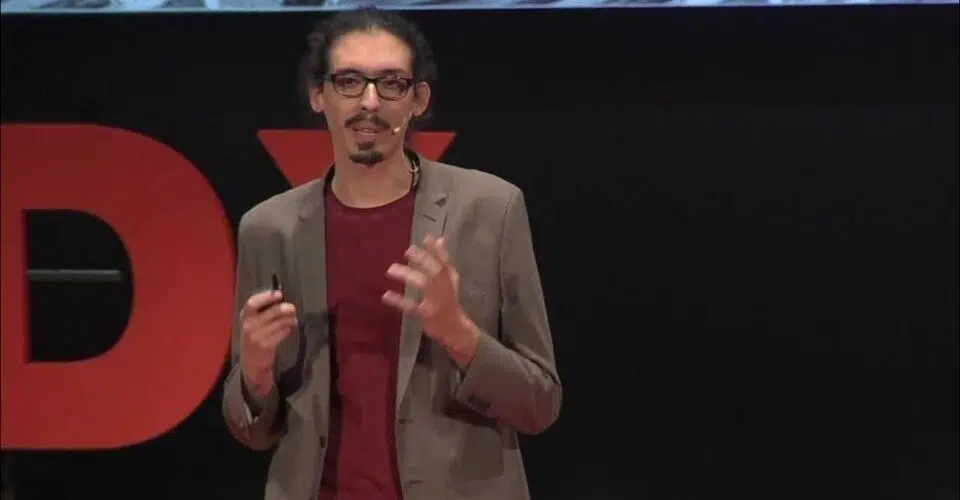
Manuel is a software engineer and open-data specialist who has applied his coding talents to journalism and civic technology. He is best known as the creator of Tabula, an open-source tool that extracts data tables from PDF files – a godsend for data journalists worldwide.
Aristarán developed Tabula in 2012–2013 while working at Argentina’s La Nación newspaper as a Knight-Mozilla OpenNews Fellow, tackling the problem of “PDFs where data goes to die”. The tool’s ease of use made it wildly popular in newsrooms and beyond, earning it an Open Data Institute award and an International Data Journalism Award. Beyond Tabula, Manuel has contributed to many civic tech projects: he worked on collaborative data portals, election data transparency, and even a platform for crowdsourced scientific research. He’s an active member of the global open government community and has spoken at conferences about “hacking for social good”. With over 20 years in software, Aristarán has also held roles in industry.
His career exemplifies how Argentine developers have spearheaded projects with worldwide social impact through open source.
- Linkedin: Manuel Aristarán
- Github: jazzido
Mariano Conti
Mariano is a software developer best known for his role in the blockchain and decentralized finance (DeFi) space as the Head of Smart Contracts (formerly Head of Oracles) at MakerDAO. MakerDAO is the project behind DAI, the first major decentralized stablecoin on Ethereum, and Conti was a core team member during its crucial growth years.
He led the development of Maker’s Oracle system, which securely feeds real-world price data to the blockchain to keep DAI stable – a critical component of the DeFi infrastructure. Mariano became something of a DeFi folk hero for famously “living on crypto”: during a period of high inflation in Argentina, he converted his entire salary to DAI and paid expenses in crypto, demonstrating real use of decentralized money. He often speaks at international conferences (DevCon, ETHGlobal) about Ethereum development and has been an advocate for Latin Americans using crypto as a financial hedge. After Maker, Conti has advised and invested in various crypto startups and continued coding smart contracts.
His story encapsulates the ingenuity of Argentine developers in the cryptocurrency revolution – using code to build financial tools that help people in unstable economies, and in doing so, gaining worldwide respect in the Ethereum community.
- Linkedin: Mariano Conti
- X (Twitter): @nanexcool
Wrap Up
These experts represent exceptional talent, making them extremely challenging to headhunt. However, there are thousands of other highly skilled IT professionals in Argentina available to hire with our help. Contact us, and we will be happy to discuss your hiring needs.
Note: We’ve dedicated significant time and effort to creating and verifying this curated list of top talent. However, if you believe a correction or addition is needed, feel free to reach out. We’ll gladly review and update the page.
Frequently Asked Questions
Yes, Argentina has a strong base of skilled engineers supported by well-regarded universities and a vibrant startup scene. Developers from Argentina often excel in areas like web frameworks, game development, cybersecurity, and AI. Their contributions to open-source projects and global tech firms show both technical expertise and adaptability.
Argentina is home to roughly 115,000 professional software developers. Most are concentrated in Buenos Aires, Córdoba, and Mendoza, where tech startups, outsourcing companies, and multinational R&D centers operate. The sector continues to expand as Argentina strengthens its digital economy.
Mid-level developers usually earn between $15,000 and $25,000 per year. Senior engineers in specialized areas such as AI, blockchain, or gaming can reach $30,000 to $50,000 annually, especially when working with international companies. While salaries are lower than in North America or Europe, they are competitive within the region and attractive to global employers.
Notable figures include Guillermo Rauch, Maximiliano Firtman, Juan Linietsky, Ariel Manzur, Matias Woloski, Ines Sombra, Mariano Conti, and Miguel Grinberg. Their achievements range from creating globally used frameworks and game engines to building billion-dollar startups and leading influential research.
Argentine engineers combine strong technical training with cultural compatibility for international collaboration. Time zone alignment with North America and Europe makes remote cooperation easier. Competitive salaries, English proficiency, and a record of successful global projects make Argentina an attractive destination for tech talent.

